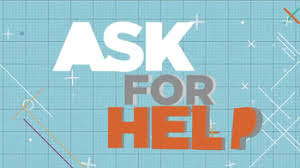It's always dangerous to listen in when psychiatrists and therapists talk among themselves. I used to do a whole series, OMGThat'sWhatTheySaid, devoted to overhearing what they say about us. More than one post was devoted to their discourse about suicide.
There's been lots of opportunity to overhear in the last several days since the Meghan Markle interview. The clinicians weighed in on Stacey Freedenthal's New York Times article where she dared to repeat what some doctors and therapists have told her (an expert in the field of suicide and suicide prevention), that they fail to ask the question about suicide. There have been proclamations about professionalism, training, protocols, risk-assessment, and - God help us - malpractice.
I started to write a post reporting my own experience of risk-assessment and the failure of my doctor and therapist to ask, even as they told me they were concerned about me. Concerned about what exactly?
But I began to feel -- empty. Like the whole conversation, including my part in it, was missing the boat.
The boat is pain.
What is at stake is whether we have a safe place to talk about our most painful feelings.











